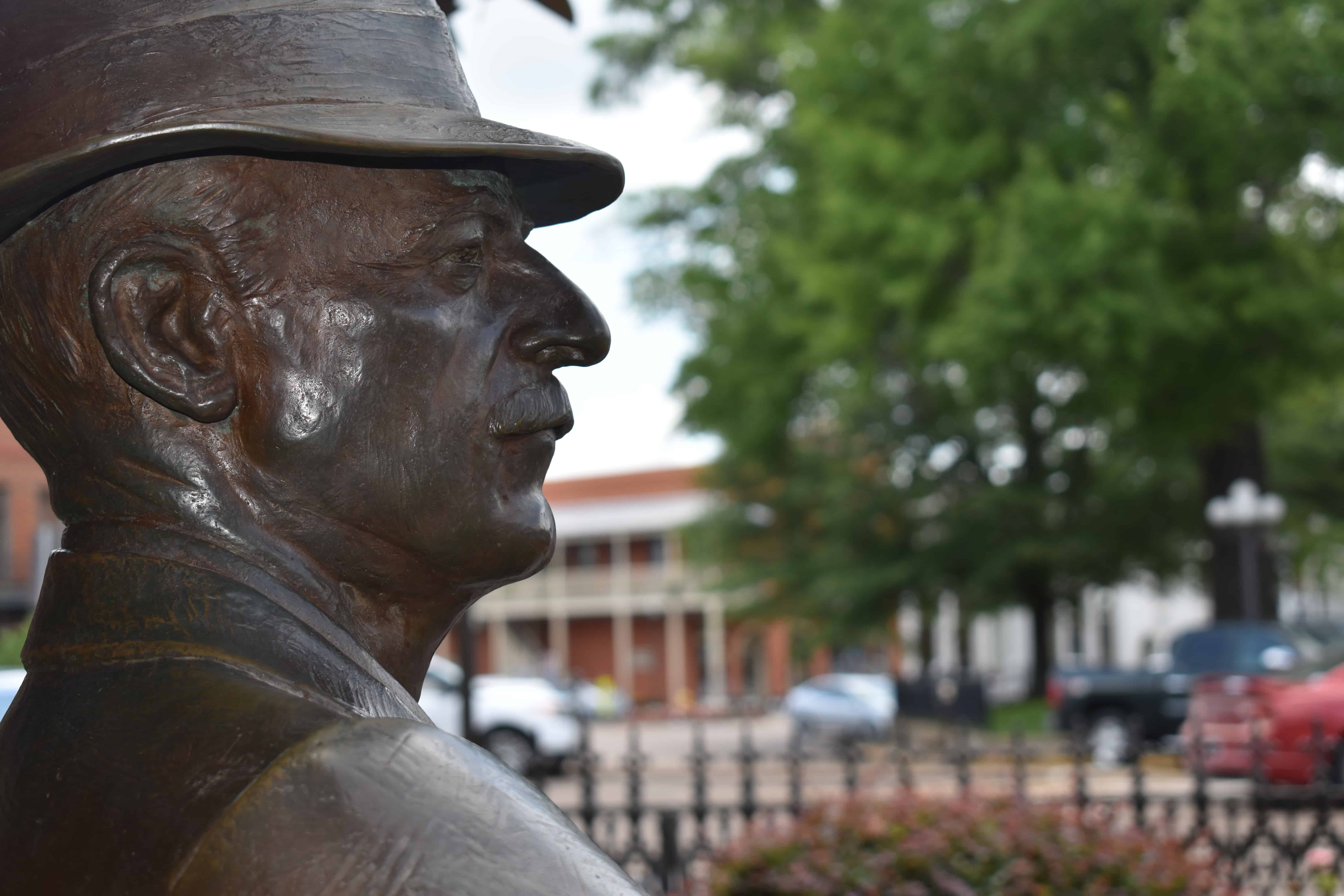
45 YEARS OF FAULKNER
Oxford's annual Faulkner Conference explores Faulkner and SlaveryBY REBECCA LAUCK CLEARY
PHOTOS COURTESY OF JODI SKIPPER
Oxford’s most famous resident doesn’t even live here anymore, but scholars and literary enthusiasts gather each summer in his honor. For five days in the heat of July, the 45th annual Faulkner and Yoknapatawpha Conference will focus on the writer and Nobel Prize winner.
On July 22-26, the academic programs of the conference, including lectures and panel discussions, are open to the public. This year’s theme, Faulkner and Slavery, takes up the question, “What did slavery mean in the life, ancestry, environment, imagination, and career of William Faulkner?”
Jay Watson, the Howry Chair of Faulkner Studies and professor of English at the University of Mississippi, has been director of the conference since 2012. He deftly pulls off the balancing act of having the conference exist as a legitimate scholarly conference whose proceedings result every year in an important published book, while remaining accessible to the general public who are interested in Faulkner and want to learn about him.
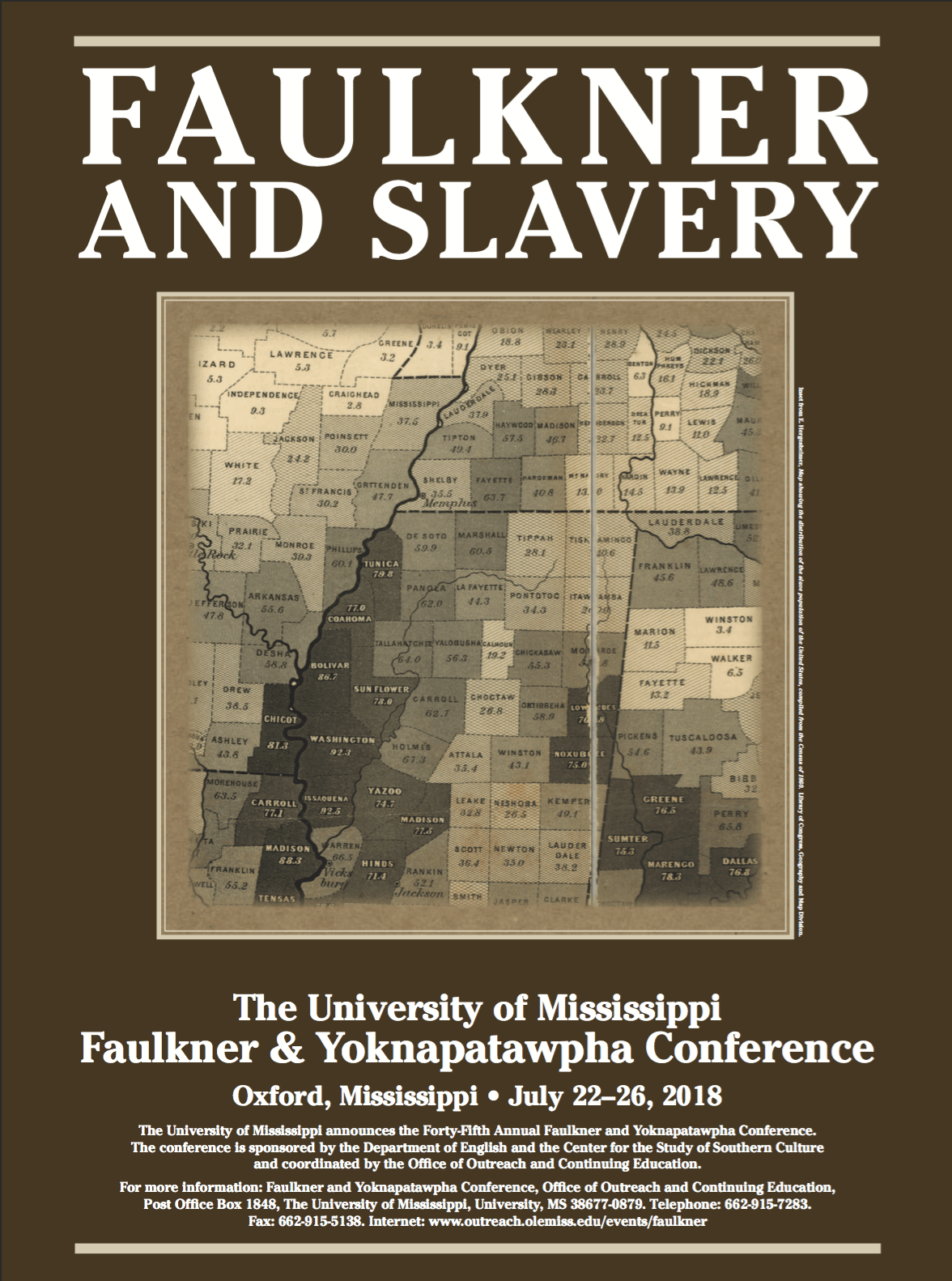
“The stance isn’t that in any given year we can take a newbie to Faulkner and introduce him to everything important, but instead, we devote each year’s conference to a particular aspect of Faulkner’s work,” Watson said. “That remains a real challenge, to come up with new topics every year that don’t rehash something we’ve already done, and have the potential to be interesting to a general reader, and remain valuable for scholars. So this is the tightrope walk we’re trying to do every year that has led us to a topic that amazingly enough has never been the topic of a Faulkner conference.”
Although during his apprenticeship and early years as a published writer, William Faulkner showed little interest in the issue of slavery, after 1930, which is the year he moved his family into an antebellum town house built by a slaveholding Mississippi planter named Robert Sheegog, he turned repeatedly to the subject of slavery over subsequent decades of his writing career. Another reason to choose this topic is that this will be the 400th year since slavery was instituted in the British North American colonies.
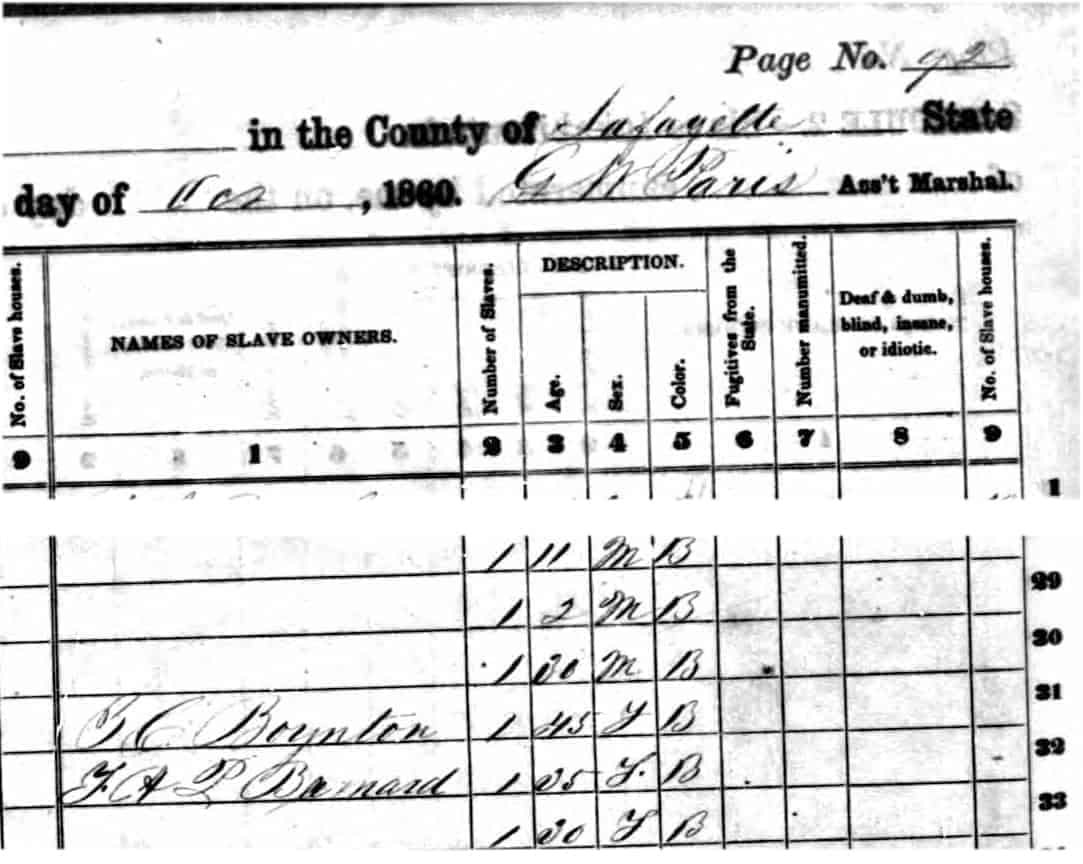
Slave Census for Lafayette County, 1860. Photo courtesy of the University of Mississippi Department of Archives and Special Collections.
“Part of this came out of the University of Mississippi Slavery Research Group, who got started studying the subject of slavery in our own history at the university but involves a real interdisciplinary group of scholars from all different kinds of departments,” Watson said. “We’re also going to have a panel about slavery at the University of Mississippi, and one about the research group and its various projects that will include a panel about the Behind the Big House project. So there’s some synergy here between the conference and the research group, and the synergy comes from me participating in both.”
For the first time ever, on July 26 one of the guided tours will focus on slavery in Holly Springs. It is not intended to look at Faulkner sites there, but instead, take advantage of the preservation initiative and educational outreach efforts towards interpreting the legacy of slavery through Behind the Big House. Jodi Skipper, University of Mississippi associate professor of anthropology and Southern Studies, will be the tour guide.
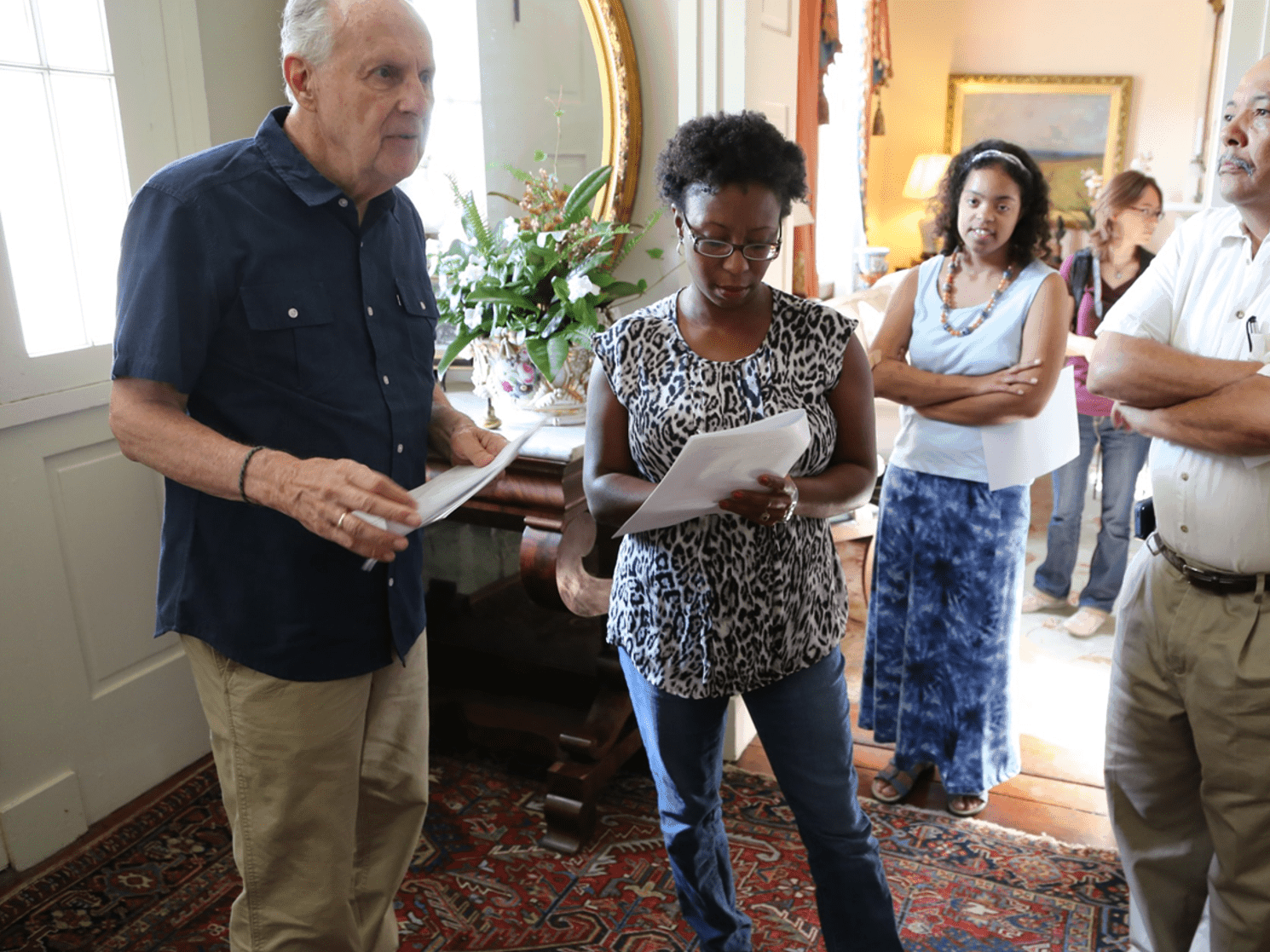
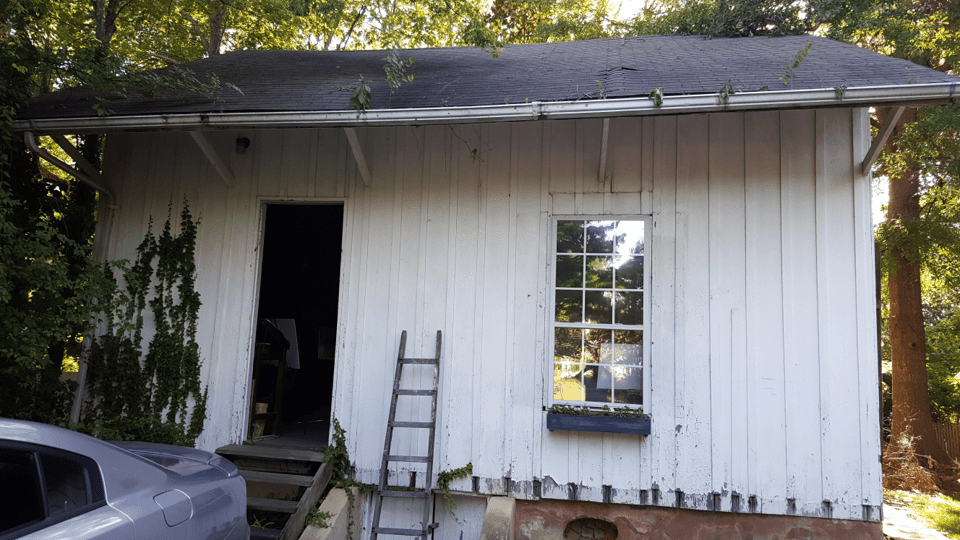
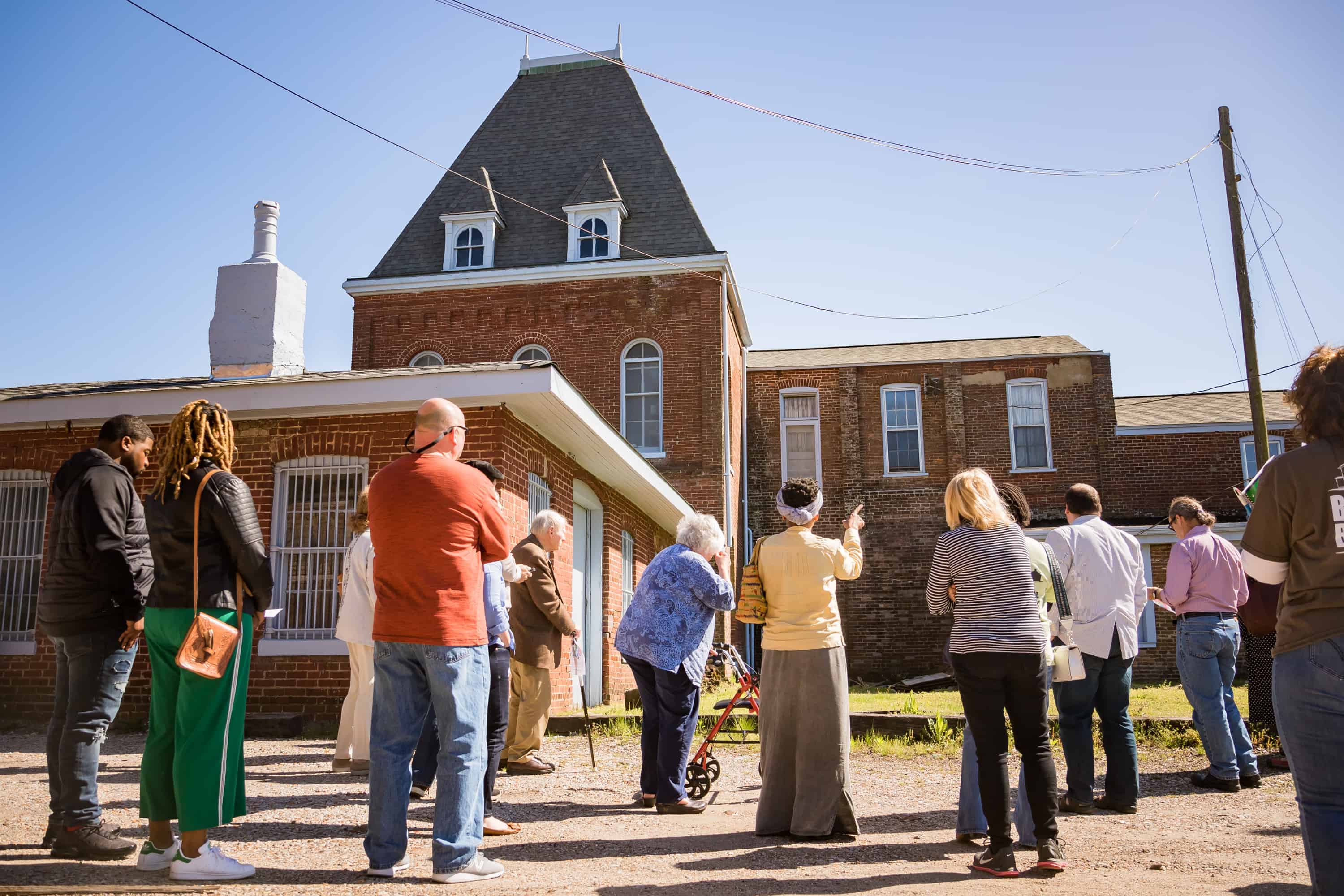
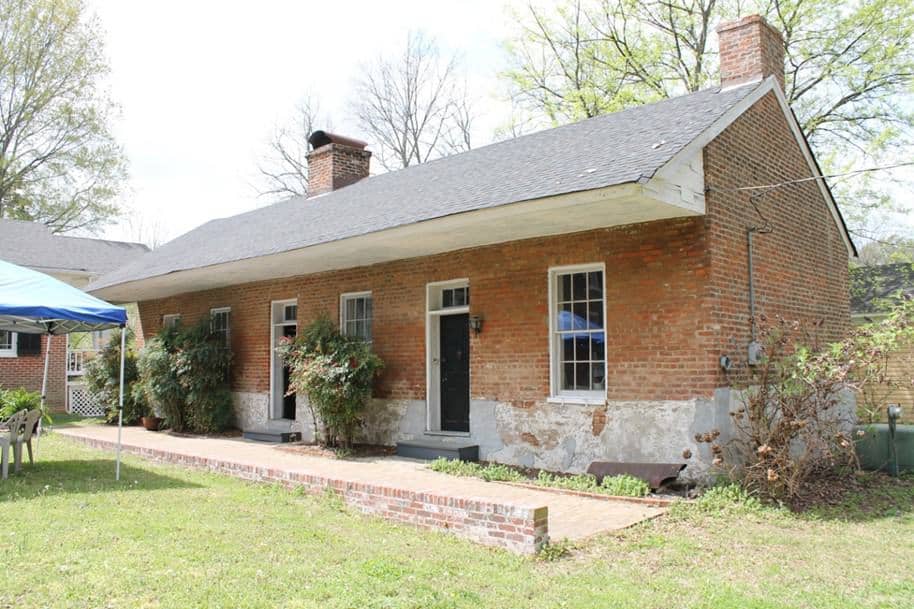
Clockwise: Dr. Jodi Skipper prepares to give a tour of Burton Place. Photo by David Wharton; Tour of Holly Springs Depot. Photo by Megan Wolfe; Craft House Kitchen Quarters; Burton Place.
“We are hoping to have three homes and the railroad depot on the tour and all four of those structures have important African American histories that go back to slave times,” Watson said.
John Matthews has been a first-hand witness of the evolution of the Faulkner Conference. He first attended as a spectator in the early 1980s, around the time his first book on Faulkner was published, and returns this year as one of the keynote speakers, for the fifth time. As professor of English at Boston University and one of the most prolific Faulkner scholars of the past several decades, he discovered in that first visit exactly what he expected: the inescapable Southernness of Faulkner’s sense of the world and historical sensibility, while also being struck how different Faulkner’s fiction was, too.
“There’s a relaxed concentration this conference stimulates that few others I attend manage: that comes from shared pleasure in Faulkner’s writing, to be sure, but also the unusual blend of amateur and professional enthusiasts that was long a signature feature of the Faulkner and Yoknapatawpha conference,” Matthews said. “I love visiting Rowan Oak, strolling around town to see the Faulkner sites that remain, and enjoying the new Oxford, too.”
Matthews’ paper for this year focuses on what the recent burgeoning of scholarship on capitalism and slavery might teach people about Faulkner’s engagement with the nation’s foundational crime. He is joined as a keynote speaker with Tim Armstrong, a literary scholar; Edward E. Baptist, a slavery historian; and Stephen Best, an African American literature and legal historian.
Of course, perhaps everyone’s favorite ritual is the midnight gathering at the gravesite, the sharing of the bottle and the reading of passages from Faulkner. This too, is an example of the challenge and opportunity created for scholars.
“I really want to give a lot of credit to the people who come to the conference now because they have a tough job, they need to be original and incisive and they need to be relevant in a scholarly way and they need to speak accessibly and they need to be ready to talk to other scholars and they need to be ready to talk to the couple from Jackson who are retired and who have just come up to Oxford because one, they’ve heard Oxford is a lot of fun, and two, they’ve always wanted to know more about Faulkner,” Watson said.
For a full schedule of events, visit www.outreach.olemiss.edu/events/faulkner/.







